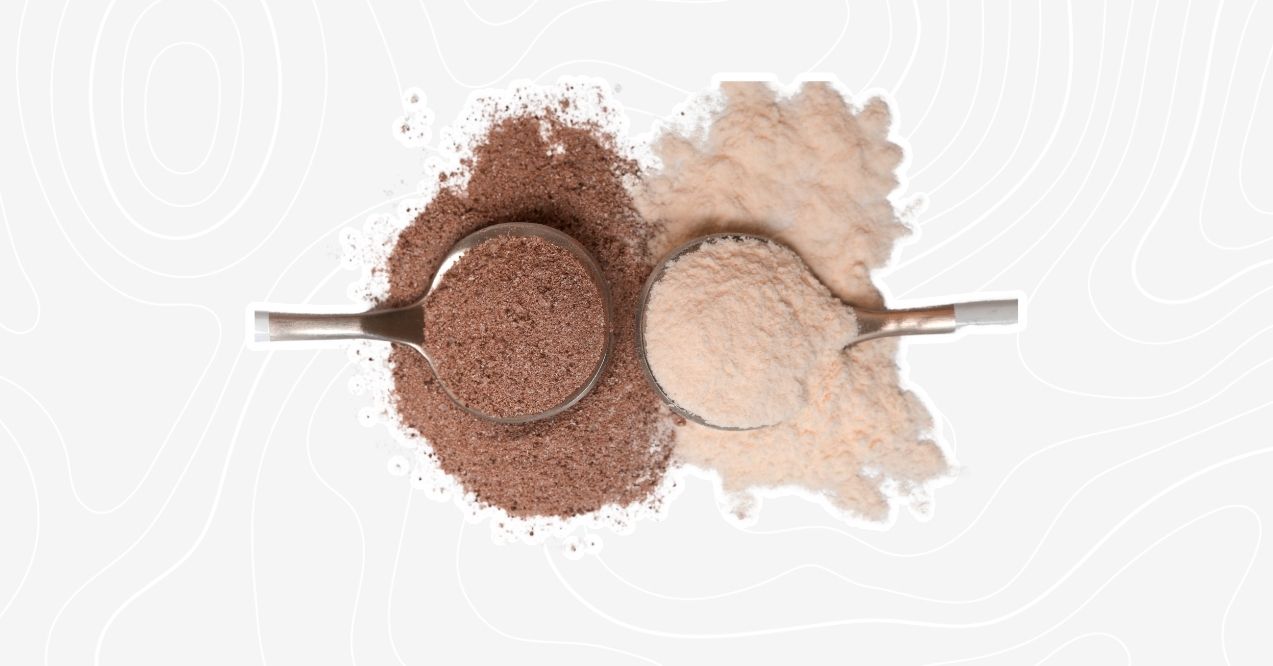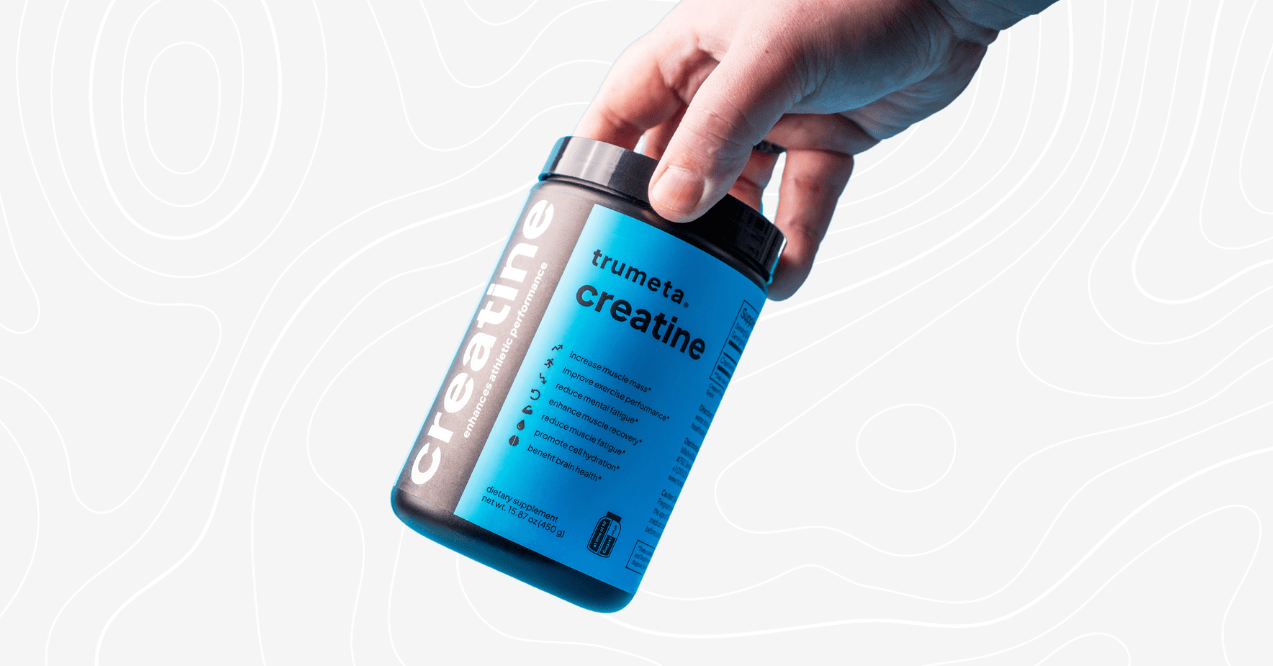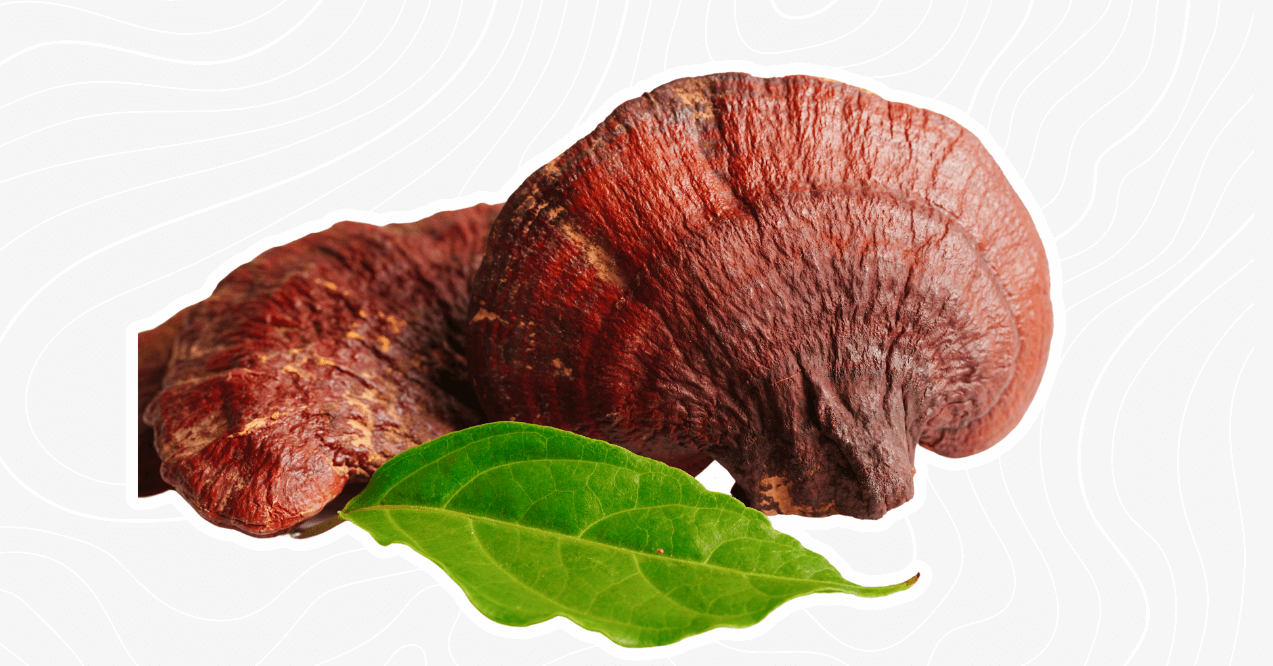

What to Look for in Pre Workout? Best Ingredients and More
What to look for in pre workout supplements? Diving into the fitness world this question buzzes louder each day, especially among those of us keen to give our gym sessions an extra kick. Pre workout supplements are soaring in popularity, becoming almost as essential to fitness enthusiasts as a good pair of sneakers.
Why? Because when chosen wisely, they may significantly enhance your workout performance. This article isn’t just another drop in the ocean of fitness advice; it’s your science-backed, easy-to-digest guide tailored not only for the young and restless but also for older adults who are just as eager to boost their fitness journey.
We’ll deep-dive into the best pre workout ingredients that promise real results even if the pre workout expires, and spotlight those ingredients to avoid in pre workout that might do more harm than good.
Prepare to be enlightened, energized, and equipped with knowledge that will power up your workouts sustainably and effectively. Let’s lift the curtain on the secrets to a successful pre-workout formula!
Key Takeaways
What to look for in pre workout? Here are the main ingredients that make a good pre workout powder:
What Is Pre-Workout?
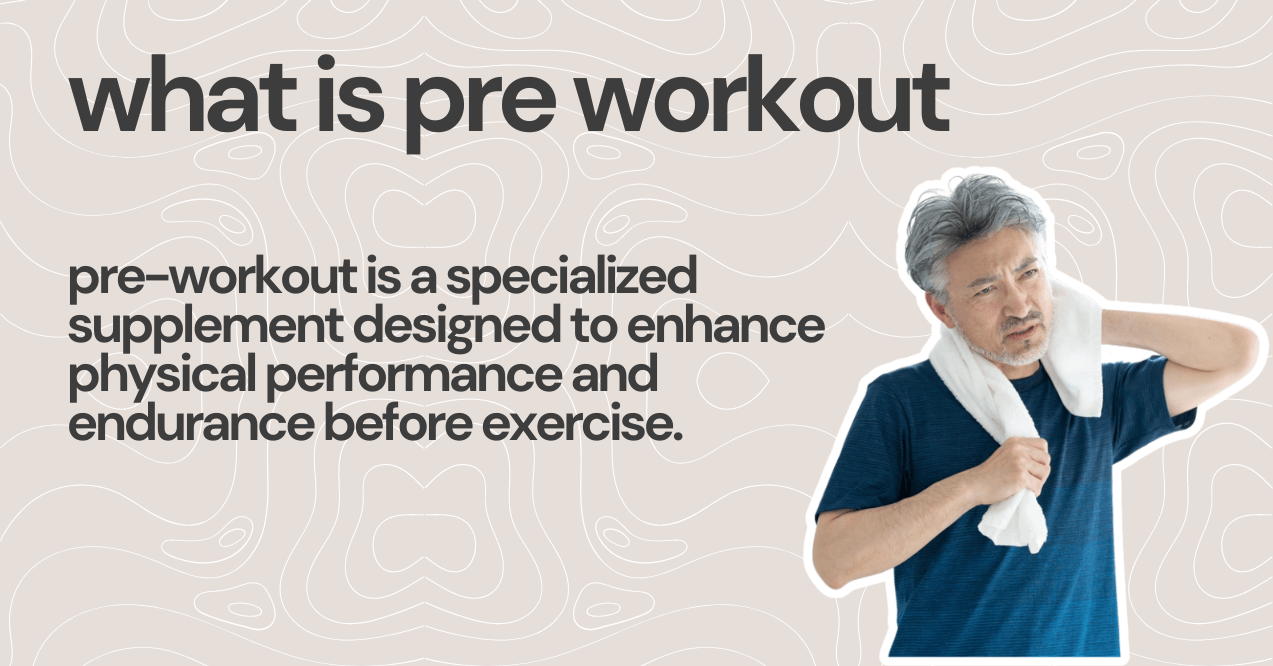
Pre-workout is a specialized supplement designed to enhance physical performance and endurance before exercise. Crafted with a blend of ingredients meant to raise energy levels, these supplements prepare your body and mind for the challenges ahead in any workout session.
Whether it’s the best pre workout for beginners or a complex formula for seasoned athletes, the goal is consistent: to maximize the effectiveness of your fitness routine. Here are the key benefits of pre-workout:
- Raised Energy Levels – Provides a significant energy stimulus that helps you power through your workouts with increased intensity.
- Improved Focus and Concentration – Sharpens your mental clarity, allowing for a more focused and productive exercise session.
- Enhanced Endurance – Helps you to sustain longer workout periods by delaying the onset of fatigue.
- Increased Muscle Strength and Efficiency – Aids in muscle performance and growth, ensuring you get the most out of every rep and set.
Incorporating pre-workout supplements into your routine might be a game-changer, especially when starting. They not only prepare your body for exercise but also help in achieving your fitness goals with more precision and energy. One question often arises: does pre-workout cause acne? This is an aspect worth considering as you choose the right supplement for your needs.

How Long Until You Feel the Effects of Pre-Workouts?
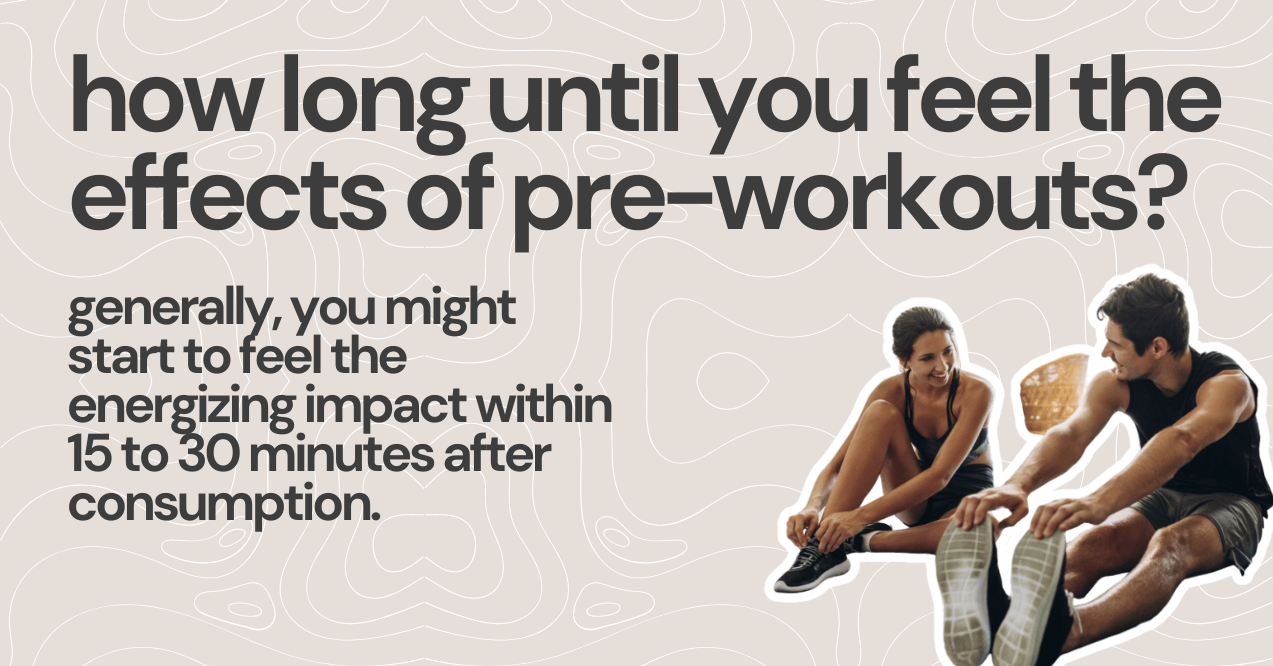
The onset of pre-workout effects can vary widely among individuals, influenced by factors such as gender, age, metabolism, and even the specific formulation of the supplement. Generally, you might start to feel the energizing impact within 15 to 30 minutes after consumption.
So, The best way to take pre workout is by consuming it 15-30 minutes prior to exercise, allowing the body to fully absorb its ingredients. Mix the recommended dose with water, ensuring hydration. Begin with a smaller dose to gauge tolerance. Avoid late-day consumption to prevent sleep disturbances. However, how long does pre-workout last?
The duration usually spans from 1 to 3 hours, peaking at different times based on the ingredients and your body’s response. To optimize these effects, the best way to take pre workout is on an empty stomach, allowing for quicker absorption. Here’s a quick glance at how different individuals may experience pre-workout:
- Young Adults – Typically feel the effects quicker due to higher metabolism rates.
- Older Adults – Might experience a delayed onset due to slower metabolic rates.
- Females – May notice effects sooner or more intensely, influenced by body mass and hormonal differences.
- Males – Often require higher doses to achieve the same intensity of effect, depending on body size and composition.
Remember, personal experiences with pre-workouts can differ significantly, so it’s essential to start with lower doses to understand your body’s reaction.
Best Ingredients to Look for in Pre Workout
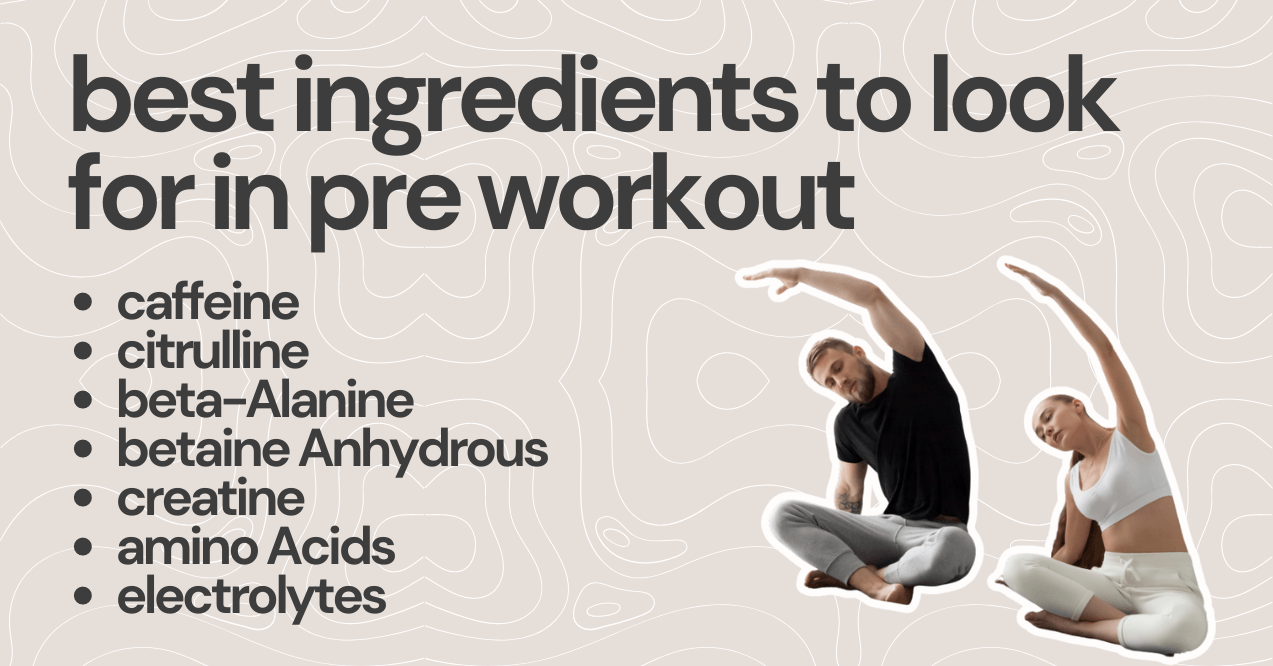
When unraveling the mystery of what to look for in pre-workout, it’s crucial to zero in on the best ingredients that promise to elevate your fitness game. This guide below illuminates the key components that fuel your energy, enhance endurance, and sharpen focus, setting the stage for an unparalleled workout experience.
Caffeine
Caffeine, a central ingredient in pre-workout supplements, is renowned for its ability to stimulate the central nervous system. This stimulation leads to increased alertness, sharper focus, and a significant stimulus in energy levels, thereby enhancing overall exercise performance. Scientific studies consistently affirm caffeine’s efficacy in improving endurance, strength, and power output during workouts.
For older adults, the key is responsible usage. Moderate amounts of caffeine can offer the same benefits without overburdening the heart or nervous system. When used judiciously, caffeine can be a safe and effective way to elevate one’s training regime, ensuring that individuals of all ages can harness its performance-enhancing benefits without compromising their health.
Citrulline
Citrulline Malate is a key ingredient in pre-workout formulas, celebrated for its ability to supportcirculation flow and boost endurance. By increasing the production of nitric oxide, it facilitates vasodilation, which allows more oxygen and nutrients to be delivered to the muscles during physical activity. This process not only aids in reducing fatigue but also improves aerobic performance, enabling individuals to push through longer, more intense workouts.
Moreover, Citrulline Malate helps in quicker recovery between exercise sets, allowing for more efficient training sessions. Its role in augmenting physical performance and endurance has been supported by various research findings, making it a cornerstone ingredient for athletes looking to elevate their exercise regimen.
Beta-Alanine
Beta-Alanine is a crucial component in pre-workout supplements, renowned for its role in enhancing muscle endurance and reducing fatigue. It works by increasing carnosine levels in muscles, which helps buffer acid in the body, thereby delaying the onset of muscle fatigue and extending workout duration.
This mechanism allows athletes and fitness enthusiasts to perform at higher intensities for longer periods. The benefits of Beta-Alanine are particularly noticeable in high-intensity interval training (HIIT) and strength sessions, where it enables users to maintain peak performance for extended periods. Its inclusion in pre-workout formulas is based on its proven ability to improve overall exercise capacity, making it a favorite among those looking to push their physical limits.
Betaine Anhydrous
Betaine Anhydrous is a powerful ingredient found in many pre-workout supplements, known for its ability to enhance physical performance and support muscle gain. It functions by promoting cellular hydration, similar to creatine, which can lead to improved power, strength, and endurance during workouts.
Additionally, Betaine Anhydrous aids in the reduction of lactic acid buildup in the muscles, allowing for longer, more intense training sessions with less fatigue. Its role in supporting the synthesis of protein also contributes to muscle growth and regeneration. For those aiming to maximize their training outcomes, Betaine Anhydrous offers a multifaceted approach to boosting workout efficiency and effectiveness, making it a valuable addition to any fitness regimen.
Creatine
Creatine is a powerhouse ingredient in pre-workout supplements, known for its ability to significantly enhance strength, power, and muscle mass. By replenishing ATP (adenosine triphosphate), creatine raises energy during high-intensity activities like weightlifting, leading to increased work volume and muscle growth.
However, many wonder, does creatine make you bloated? This concern stems from creatine’s mechanism of increasing water retention in muscles, which can sometimes lead to a temporary feeling of bloating.
While this effect is a natural part of creatine’s process to enhance muscle energy stores, it’s typically minor and diminishes as the body adjusts. The benefits of improved exercise performance and muscle development with creatine use far outweigh the temporary discomfort of bloating for most individuals, making it a staple in the fitness community for maximizing training outcomes.
Amino Acids
Arginine
Arginine, a key amino acid in pre-workout supplements, is prized for its ability to boost nitric oxide levels, supporting circulation flow and optimizing oxygen delivery to muscles. This process supports increased endurance and recovery, making workouts more effective
Tyrosine
Tyrosine, an amino acid found in pre-workout supplements, plays a crucial role in neurotransmitter production, including dopamine and norepinephrine. This supports improved focus, alertness, and stress resistance during workouts, making it easier to maintain intensity and concentration, especially under strenuous conditions.
Tyrosine’s benefits are particularly noted in enhancing cognitive function and mental performance.
Taurine
Taurine, a conditionally essential amino acid included in many pre-workout formulas, is celebrated for its ability to enhance hydration, electrolyte balance, and overall cardiovascular health. This contributes to improved exercise performance and reduced muscle fatigue, allowing for longer and more intense training sessions.
Taurine’s role extends beyond physical benefits, also supporting cognitive function, making it a versatile component of any pre-workout regimen.
Theanine
Theanine, often found in pre-workout supplements, is an amino acid known for its unique ability to promote relaxation without sedation. By pairing it with stimulants like caffeine, Theanine helps smooth out the jitters, enhancing focus and mental clarity during workouts.
This synergistic effect allows for a more balanced and sustained energy stimulus, improving both physical performance and cognitive function, making it an invaluable ingredient for those looking to optimize their fitness routine.
Electrolytes
Electrolytes are vital components of pre-workout supplements, playing an essential role in maintaining hydration, nerve function, and muscle contraction during intense physical activity.
These charged particles, including potassium, sodium, magnesium, and calcium, help balance fluid levels in the body, ensuring that muscles work optimally and efficiently. Adequate electrolyte levels can defend against cramping, fatigue, and dehydration, significantly impacting endurance and performance.
By replenishing electrolytes lost through sweat, pre-workout supplements with these minerals support sustained energy levels and recovery, making them crucial for athletes and fitness enthusiasts aiming to maximize their workout effectiveness and accelerate post-exercise recovery.
Beetroot Extract / Powder
Beetroot extract or powder is a standout ingredient in pre-workout supplements, revered for its high nitrate content. These nitrates are converted into nitric oxide within the body, leading to supported body circulation flow, optimized oxygen delivery, and energy efficiency during exercise. This process significantly improves endurance and stamina, allowing athletes to push harder and longer in their training sessions.
Additionally, beetroot’s natural antioxidants support overall health and recovery by defending against oxidative stress encountered during intense workouts. Its inclusion in pre-workout formulations not only boosts physical performance but also contributes to better heart health and quicker recovery times, making it a favored choice for those looking to naturally enhance their fitness regimen.
B Vitamins
B Vitamins, integral components of pre-workout supplements, play a critical role in the body’s energy production and utilization processes. These vitamins, including B6, B12, niacin, and riboflavin, are essential for converting food into energy, supporting efficient energy metabolism during workouts. Their involvement goes beyond energy production; B Vitamins are also crucial for brain function, aiding in the maintenance of focus and mental clarity under the strain of physical exertion.
Additionally, they help in regenerating and building muscle, making them vital for recovery and growth. By ensuring a sufficient intake of B Vitamins through pre-workout supplements, athletes and fitness enthusiasts can optimize their performance, endurance, and recovery, making these nutrients indispensable for anyone looking to enhance their physical and mental fitness capabilities.
Nootropics
Nootropics in pre-workout supplements are gaining traction for their ability to enhance cognitive function, focus, and motivation during exercise. These cognitive enhancers work by improving neurotransmitter activity in the brain, leading to better mental clarity, alertness, and concentration.
The inclusion of nootropics in fitness regimes aids in maintaining a strong mind-muscle connection, crucial for executing workouts with precision and intensity. Additionally, they help combat mental fatigue, allowing for prolonged periods of focused training.
This dual benefit of boosting both mental and physical performance makes nootropics an invaluable addition to pre-workout formulations, catering to those who seek to maximize their training efficiency and achieve their fitness goals with an optimized mental state.
Proprietary Blends vs Transparent Labeling
In the realm of sports supplements, the distinction between proprietary blends and transparent labeling is crucial for consumers who prioritize safety and efficacy.
Proprietary blends are often listed on supplement labels as a single combined measurement, without disclosing the specific amounts of each ingredient. This lack of detail can obscure the potency and effectiveness of the product, leaving users guessing about what they’re consuming and whether it meets their needs.
On the flip side, transparent labeling demystifies the contents, providing detailed information on each component’s dosage. This clarity is essential, as it allows individuals to tailor their supplement intake to their specific fitness goals and dietary needs, ensuring they’re not ingesting excessive amounts of certain compounds.
Understanding what makes a good pre-workout hinges on this concept of transparency. The best pre-workout ingredients should not only be effective but also clearly stated on the label to guarantee users are making informed choices about their health and performance.
Trumeta pre-workout exemplifies this approach by embracing transparent labeling, ensuring that every scoop is not just a promise of stimulating energy and focus but a testament to the brand’s dedication to quality and consumer safety.
With ingredients like Thiamin, Vitamin B6, and B12 for energy and recovery; L-Tyrosine and Caffeine Anhydrous for focus and endurance; Beta Alanine and Beet Root Powder for muscle endurance and circulation flow; Ginseng Extract for mental sharpness; and Hyaluronic Acid for joint support, trumeta pre-workout stands out as a leader in the quest for peak physical performance.
This level of transparency fosters trust and confidence in the product, positioning trumeta as a go-to for those seeking a safe and effective boost to their fitness regimen.
Ingredients To Avoid in Pre Workout
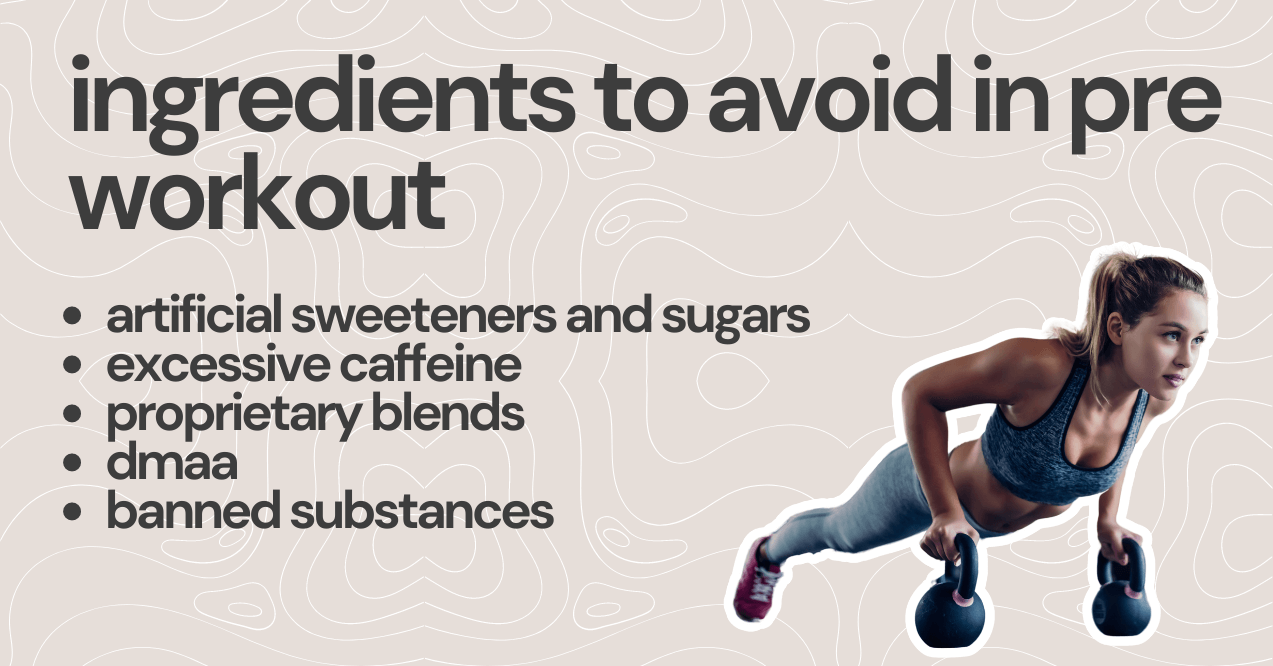
When selecting a pre-workout supplement, it’s not only important to know what to look for but also what to avoid. Certain ingredients, despite their popularity, might not align with everyone’s health goals or could have undesirable side effects. Here’s a list of ingredients to be cautious of:
- Artificial Sweeteners and Sugars – Often used to improve taste, these may cause gastrointestinal discomfortand negatively impact your body sugar levels.
- Excessive Caffeine – While caffeine stimulates energy, too much may lead to jitters, sleep loss, and increased heart rate.
- Proprietary Blends – These may hide the exact amounts of each ingredient, making it difficult to assess potency and safety.
- DMAA (1,3-dimethylamylamine) – Banned in several countries, DMAA may pose serious health risks, including cardiovascular problems.
- Banned Substances – Always check for ingredients that might be prohibited in competitive sports to avoid potential disqualification and health risks.
Many gym-goers and athletes are concerned about the impact of pre-workout supplements on their skin. Does Pre-Workout Cause Acne? Certain ingredients in these supplements, such as whey protein, artificial additives, and high levels of B vitamins, may contribute to acne by influencing hormone levels or causing irritation.
Choosing a pre-workout should involve careful consideration of its components to ensure it supports your fitness journey without compromising your health.
Final Thoughts
Essential information about Pre-Workouts:
- Rising Popularity of Pre-Workouts – An essential tool for fitness enthusiasts, akin to a good pair of sneakers.
- Pre-Workout Benefits – Designed to stimulate energy, focus, endurance, and muscle strength before exercising
- Effects Timing – Feel the boost within 15-30 minutes, with effects lasting 1-3 hours. Individual responses vary.
Transparency vs. Proprietary Blends:
- The importance of clear labeling for informed supplement choices, highlighted by Trumeta pre-workout’s commitment to transparency.
Ingredients to Watch Out For:
- Advises caution against artificial sweeteners, excessive caffeine, proprietary blends, DMAA, and banned substances for health and safety.
A good pre-workout supplement effectively combines ingredients like caffeine, beta-alanine, citrulline malate, and B vitamins to stimulate energy, focus, endurance, and muscle performance. It should have transparent labeling, minimal artificial additives, and be tailored to individual health needs and fitness goals for optimal safety and efficacy.
The best pre-workout ingredients include caffeine for energy, beta-alanine for endurance, citrulline malate for supported circulation flow, B vitamins for energy metabolism, creatine for strength, and electrolytes for hydration. These components work synergistically to enhance workout performance, focus, and recovery, making them essential for any effective formula.
To use pre-workout effectively, mix the recommended serving with water and consume it 15-30 minutes before your workout. This timing allows the ingredients to activate, stimulating energy, focus, and endurance. Start with a half dose to assess tolerance and avoid taking it too close to bedtime to prevent sleep disruption.
When choosing a pre-workout for an energy boost, look for ingredients like caffeine and beta-alanine. Caffeine is a well-known stimulant that enhances focus and energy, while beta-alanine helps reduce muscle fatigue.
Advertisement. This site offers health, wellness, fitness and nutritional information and is designed for educational purposes only. You should not rely on this information as a substitute for professional medical advice, diagnosis, or treatment. If you have any concerns or questions about your health, you should always consult with a physician or other health-care professional. Do not disregard, avoid or delay obtaining medical or health related advice from your health-care professional because of something you May have read on this site. The use of any information provided on this site is solely at your own risk.
Advertisement. This site offers health, wellness, fitness and nutritional information and is designed for educational purposes only. You should not rely on this information as a substitute for, nor does it replace, professional medical advice, diagnosis, or treatment. If you have any concerns or questions about your health, you should always consult with a physician or other health-care professional. Do not disregard, avoid or delay obtaining medical or health related advice from your health-care professional because of something you may have read on this site. The use of any information provided on this site is solely at your own risk.
